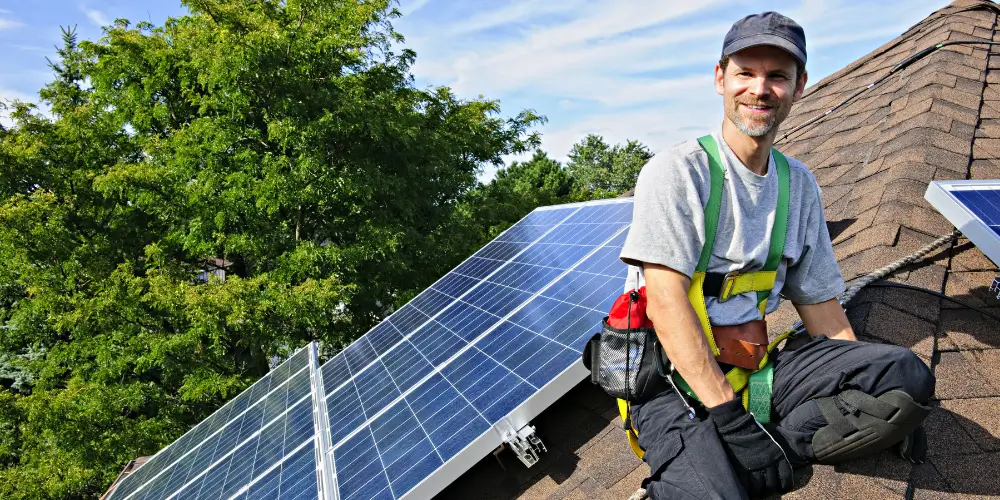The validity period of an Electrical Installation Condition Report (EICR) in the UK varies based on the type of property you own. For residential tenants, landlords and homeowners need to renew their EICR every 5 years or upon a change of tenancy. Commercial properties, including rented ones, require an EICR every 5 years. Industrial sites should update their EICRs every 3 years due to more intensive use and potential risks. If your property has undergone notable modifications or you’ve had major environmental impacts, you’ll need to reassess more frequently. Understanding these details can greatly enhance your property’s safety compliance and management.
Key Takeaways
- Residential properties typically require an EICR every 5 years or at each change of tenancy.
- Commercial properties should have an EICR conducted every 5 years due to increased usage risks.
- Industrial settings are advised to undergo EICR every 3 years because of heightened operational hazards.
- Private landlords must ensure an EICR is completed every 5 years to comply with safety regulations.
Table of Contents
How Long is an EICR Valid in the UK?
You might wonder how long an Electrical Installation Condition Report (EICR) remains valid in the UK.
Typically, residential properties have a validity period of five years. However, several factors can influence this duration, including the type of installation and its usage.
It’s vital to evaluate these variables to guarantee your property remains compliant with current electrical safety regulations.

General Validity Period for EICRs
Understanding the validity period of an Electrical Installation Condition Report (EICR) is vital for maintaining electrical safety standards in the UK. The general validity of an EICR depends on several factors. Still, typical durations are established based on the type and use of the premises.
For residential properties, the standard EICR validity period is 5 years or at the change of tenancy. It’s important to highlight that this isn’t just a recommendation but often a requirement, especially for landlords and property managers. In commercial environments, the EICR certificate validity period is usually shorter, often every 5 years, due to the higher usage and potential risks involved.
Here’s a concise breakdown:
| Property Type | EICR Validity Period | Frequency Recommendation |
| Residential | 5 years | At the change of tenancy |
| Commercial | 5 years | Every 5 years |
| Industrial | 3 years | Every 3 years |
You might wonder, “How often should you do an EICR?” Beyond these general guidelines, it’s wise to conduct more frequent checks if any significant changes or renovations occur. Regularly updating your EICR guarantees compliance and enhances safety, making it a fundamental practice for responsible property management.
Factors Influencing EICR Validity
Several factors can affect the validity of an Electrical Installation Condition Report (EICR) in the UK, making it vital for property owners and managers to stay informed. The primary consideration is the frequency of the EICR, which isn’t uniformly set but varies depending on several conditions.
Firstly, the type of property plays a key role. For instance, residential properties typically require an EICR every five years or with each change of tenancy. In contrast, commercial properties often need more frequent checks, generally every three to five years. This discrepancy is due to the higher risk and usage levels in commercial environments.
Secondly, the age and condition of the electrical installation greatly influence how often electrical safety testing should be done. Older installations may require more frequent reviews to mitigate the risks of deterioration over time.
Additionally, environmental factors such as exposure to moisture or heat can expedite the ageing process of electrical systems, necessitating more frequent inspections.
Lastly, any modifications or substantial changes to the electrical system should prompt an immediate review to guarantee continued safety and compliance with current regulations.
Understanding these factors will help you maintain the necessary safety standards and adhere to legal requirements for your property’s electrical systems.
EICR Validity for Different Property Types
How often should you do an EICR? The frequency of Electrical Installation Condition Reports (EICR) depends on the type of property and its use. Understanding the nuances of EICR validity for various property types is essential for ensuring compliance with UK regulations.
For residential properties, the standard validity period typically spans 5 years or upon change of occupancy.
In contrast, commercial properties require more frequent EICR checks, usually every 5 years, due to higher safety risks and usage demands.

Residential Properties
When managing the electrical safety of residential properties in the UK, you must understand that EICR requirements vary greatly between the Private Rented Sector and Owner-Occupied Homes.
An EICR is required for rental properties at least every five years or more frequently, depending on the age and condition of the electrical installations.
Private Rented Sector
In the private rented sector, landlords must ensure that the electrical installations in residential properties are inspected and tested every five years, as mandated by UK law.
This assures compliance with safety standards. Failure to adhere can result in legal penalties.
You’re responsible for maintaining records of each EICR and demonstrating your property’s ongoing compliance.
Prioritise this to safeguard tenants and avoid potential infractions.
Owner-Occupied Homes
You might be surprised to learn that the requirement for an Electrical Installation Condition Report (EICR) is less stringent for owner-occupied homes than in the privately rented sector.
Typically, it’s recommended that you undertake EICR testing every 5 years or upon changing occupancy.
This guarantees that your electrical systems adhere to safety standards, prevent potential hazards, and maintain system integrity throughout prolonged use.
Commercial Properties
When considering EICR validity for commercial properties in the UK, it’s vital to differentiate between offices, shops, and industrial units.
Each category has specific electrical safety requirements and differing frequencies for mandatory inspections.
You must verify that your property’s electrical installations comply with the latest regulations to avoid penalties and enhance safety.
Offices and Shops
Understanding the Electrical Installation Condition Report (EICR) requirements for offices and shops is essential for maintaining safety and compliance with UK regulations.
- Frequency: EICRs must be conducted every 5 years.
- Scope: Includes all fixed electrical systems and installations.
- Documentation: Guarantee detailed records are maintained.
- Compliance: Adheres to BS 7671 Wiring Regulations.
Special Locations
- Swimming Pools: Every 1 year, because of the high-risk environment.
- Caravans: Every 3 years.
- Educational Establishments: Every 5 years.
Stay informed and guarantee your premises meet all required electrical safety standards.
Industrial Units
Adhering to the Electrical Installation Condition Report (EICR) standards is essential for ensuring electrical safety and compliance in industrial units across the UK.
Your EICR should typically be renewed every three to five years. Still, this timeframe can vary depending on operational demands and equipment usage intensity.
Regular assessments mitigate risks, ensuring your operations align precisely with current Health and Safety Executive (HSE) regulations.
Ensuring Compliance with EICR Validity
To guarantee compliance with EICR validity, you must regularly review and update your electrical installation condition reports in accordance with the latest UK safety standards and regulations.
This proactive approach guarantees that your electrical systems are safe and up to code, minimising the risk of legal and safety issues.
Here are key actions you’ll need to take:
- Understand the Standards: Familiarise yourself with the BS 7671 Requirements for Electrical Installations. This standard is critical as it outlines the necessities for the design, installation, inspection, and testing of electrical installations.
- Schedule Regular Inspections: Inspection frequencies will vary depending on the type of property you manage. Industrial sites may require more frequent reviews than residential properties due to higher usage rates and potential risks.
Guarantee that these inspections are scheduled as per the recommended intervals and more often if significant changes to the electrical system occur.
- Update Your Documentation: After each inspection, update your EICR to reflect any changes or repairs made. This documentation should be thorough, detailing every element inspected, issues found, and actions taken.
It serves as a legal document in case of incidents and for insurance purposes.
- Hire Qualified Professionals: Only electricians who are registered with a competent person scheme will be used to conduct these inspections.
Their expertise guarantees that the inspection is thorough and up to the current standards.

When to Renew Your EICR in the UK
You’ll need to renew your EICR when specific signs indicate the electrical system’s safety has potentially degraded.
Schedule regular inspections, typically every five years for residential properties, to guarantee ongoing compliance and safety.
Recognising these signs early can prevent more severe issues and make certain your property remains up to code.
Signs That Your EICR Needs Renewal
Understanding when your Electrical Installation Condition Report (EICR) needs renewal is vital for maintaining electrical safety in your UK property. The EICR assesses the safety of electrical installations, and its validity can vary. Still, certain signs might indicate it’s time for a review before the standard period lapses.
Here are key indicators:
Frequent Electrical Faults
If you’re experiencing recurring circuit breaker trips or fuse blowouts, it’s a strong signal that your electrical system may have underlying issues that need thorough inspection.
Visible Wear and Tear
Signs of ageing, such as discoloured sockets, frayed wiring, or burn marks around electrical outlets, necessitate an immediate EICR to assess potential risks and prevent hazards.
Installation of New Major Appliances
Adding high-power appliances can strain your existing electrical system. Suppose substantial changes like these have been made. In that case, an updated EICR guarantees your system’s capacity and safety align with these new demands.
Post-Incident Check
After any significant incident, such as flooding, fire, or other damages affecting your property, it’s important to get an EICR done. Such events can compromise the integrity of your electrical installations, posing serious risks.
Scheduling Regular EICR Inspections
Regularly scheduling EICR inspections ensures your electrical installations comply with UK safety standards.
You are responsible for guaranteeing that your property’s electrical systems are efficient and safe from potential hazards. The frequency of these inspections typically depends on several factors, including the type of installation, its use and age, and the environmental conditions.
For domestic properties eicr frequency, renew your EICR every 5 years or with each change of occupancy.
However, if you’re a landlord, the regulations tighten. You must arrange for an inspection every five years or upon a change in tenancy, whichever comes first. This guarantees that any deterioration can be caught early and remedied, safeguarding your tenants and your property.
The stakes are higher in commercial settings due to increased electrical load and public access. Therefore, it’s recommended that an EICR be conducted every five years.
Industrial environments, with their complex machinery and higher risk factors, should see inspections every 3 years.
The Legal Implications of an Expired EICR
If your Electrical Installation Condition Report (EICR) has expired, you’re not only compromising safety but also risking legal consequences.
As a landlord, you’re required to guarantee that all electrical installations in your properties are safe and regularly inspected; failure to comply can lead to significant penalties.
Let’s examine the specific responsibilities you hold and the potential repercussions of neglecting this essential requirement.
Safety Implications of an Expired EICR
With an expired Electrical Installation Condition Report (EICR), you risk system failures and potentially violate UK safety regulations, which can lead to severe legal consequences.
An EICR is critical in guaranteeing that electrical installations meet the stringent standards set by UK law. Here’s precisely what you need to understand:
- Increased Risk of Electrical Hazards: Without a current EICR, undetected issues such as faulty wiring or overloaded circuits can escalate, potentially leading to electrical fires or shocks.
- Legal Accountability: Should an electrical accident occur due to neglected maintenance, you could be held legally responsible for any injuries or damages. This accountability isn’t just theoretical; it carries potential criminal charges.
- Insurance Implications: Many insurance policies require a valid EICR to maintain coverage. An expired report could invalidate your insurance, leaving you exposed to financial risks in the event of an electrical incident.
- Regular Updates Required: Electrical standards evolve, and an EICR guarantees compliance with the latest safety regulations. Old reports mightn’t reflect recent legislative changes, increasing compliance risks.
Keep these points in mind to avoid the pitfalls of an outdated EICR and guarantee your electrical systems’ safety and legal compliance.

Landlord Responsibilities
As a landlord in the UK, you bear the legal obligation to guarantee that all electrical installations in your properties are safe and compliant with current standards. An expired Electrical Installation Condition Report (EICR) not only violates regulatory frameworks but also exposes you to significant legal risks. You’re required to renew the EICR at intervals recommended by a qualified electrician, generally every 5 years for rental properties.
Failure to comply can lead to severe consequences, including fines and invalidated property insurance. Here’s a snapshot of potential impacts:
| Consequence | Impact | Emotional Toll |
| Legal Action | Financial penalties, possible criminal charges | Stress, anxiety |
| Insurance Voidance | No coverage in case of electrical faults | Insecurity, fear |
| Tenant Disputes | Legal disputes, loss of tenant trust | Frustration, isolation |
| Safety Hazards | Risk of fire or electrocution | Guilt, fear for tenant safety |
Ascertain you’re not just compliant but also conscientious. Regular checks and timely updates to your EICR aren’t just legal duties; they’re moral ones. Protecting your tenants’ safety reflects your integrity as a landlord. Stay vigilant, stay compliant, and ascertain that our properties remain a haven for those who inhabit them.
What to Do When Your EICR Expires
When your Electrical Installation Condition Report (EICR) expires, it’s crucial to arrange for a qualified electrician to conduct a new inspection. Confirming your electrical installations meet the UK standards for safety and functionality isn’t just a legal requirement; it’s a critical step in safeguarding your property and its occupants.
Here’s what you need to do:
- Schedule a Reinspection: Book a new EICR as soon as your current one expires. The availability of qualified electricians can vary, and waiting might leave your property unprotected and non-compliant with legal standards.
- Choose a Qualified Electrician: Verify that the electrician is registered with a competent person scheme, like the NICEIC or ELECSA. This registration assures that they’re up-to-date with the latest wiring regulations and safety standards.
- Review the New Report Thoroughly: Once the inspection is complete, review the report in detail. Look for any faults or recommendations and plan for any necessary remedial work. Understanding the specifics can prevent future electrical hazards.
- Implement Changes Promptly: If the EICR identifies issues, prioritise resolving them. Depending on their nature, unresolved electrical problems can pose significant risks, from fire hazards to system failures.
Reacting proactively when your EICR expires not only confirms your property remains compliant with the Electricity at Work Regulations 1989 but also enhances the safety and reliability of your electrical installations.
Stay informed and act decisively to maintain a secure and legally compliant property.
Frequently Asked Questions
Can I Extend My EICR Validity Period in Special Circumstances?
Can you bend the rules? Unfortunately, you can’t extend your EICR validity period in special circumstances; it’s set to guarantee consistent safety standards. Always plan for timely re-inspections according to the original schedule.
How Do Weather Conditions Affect EICR Testing Intervals?
Weather conditions don’t typically impact EICR testing intervals. These intervals are predefined and focus on installation type and usage rather than environmental factors. Regular schedules guarantee electrical safety regardless of weather changes.
Are There Any Penalties for Not Having a Current Eicr?
If you don’t maintain a current EICR, you could face hefty fines. Failing compliance can result in penalties, emphasising the critical nature of electrical safety adherence.
Does a New EICR Affect Property Insurance Rates?
A new EICR can positively influence your property insurance rates. It assures insurers that your property’s electrical systems meet safety standards, potentially leading to lower premiums due to reduced risk factors.
Can DIY Electrical Work Impact EICR Validity?
DIY electrical work can indeed impact your EICR’s validity. If not up to professional standards, it might lead to a failed report, necessitating further professional intervention to guarantee compliance with safety regulations.


